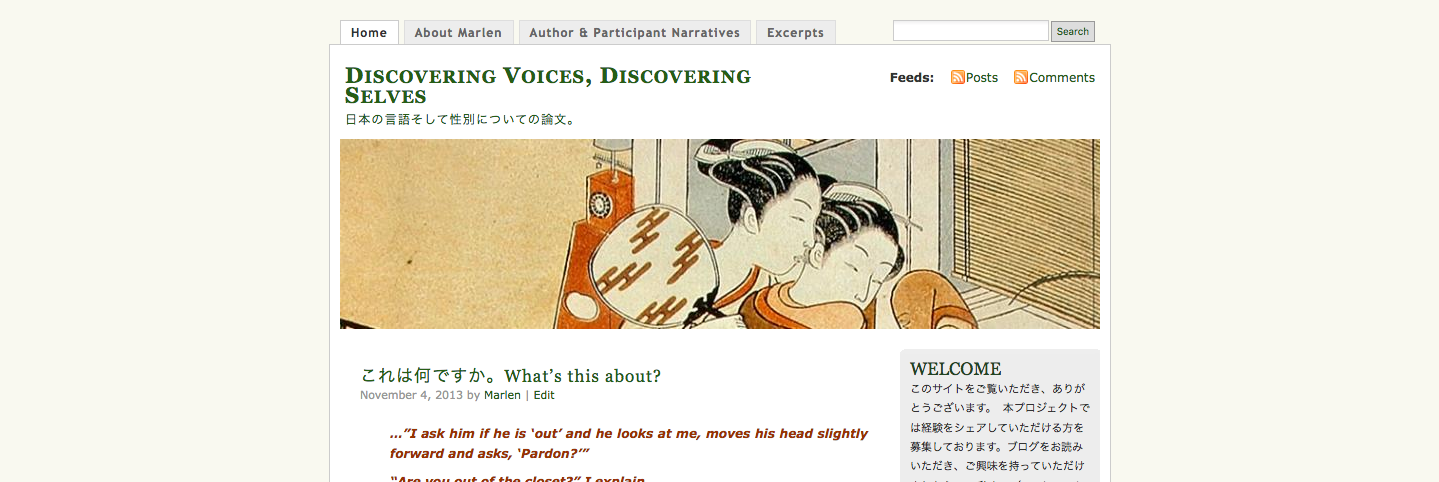“…I ask him if he is ‘out’ and he looks at me, moves his head slightly forward and asks, ‘Pardon?’”...
Harrison, M. (2006). Developing keypal projects in the Japanese university classroom. National University of Singapore: Reflections on English Language Teaching, 5(1), 141-148. ABSTRACT With...
Harrison, M. (2006). Taking the teacher out of the test: Exploring student automomy in EFL classroom testing. In M. Koyama & E....
Poster presented at South Atlantic Modern Language Association (SMLA) conference in Jacksonville, FL, 2016 See the full-sized poster here: poster-for-conference-2-1...
"Aware of the suffering created by fanaticism and intolerance, we are determined not to be idolatrous about or bound to any doctrine, theory, or ideology. (Hanh 23)"
"Two main themes, the loss of control and isolation, are examined, and an existential interpretation is paired with insight from Buddhist psychology. Finally, we conclude with implications for future research in sport and migration studies as well as practical considerations for the use of autoethnography in psychological research and practice."
Bridging Passion and Profession: Supporting Agency and Investment in Multilingual University Writers
"The authors sought to look back at the trajectory of their experiences in a second language communication and composition course in order to more deeply understand the roles of agency and investment in their own and fellow classmates' learning."
"We will explore why and how an MA thesis director introduces autoethnography as an alternative research discourse to MA English thesis students, and examine student responses. Pedagogical implications, teaching resources, and thesis examples will be presented in order to highlight the myriad creative possibilities for using autoethnography to both celebrate and interrogate literature, literacy, and language."
This manuscript - a duoethnography - seeks to examine the rationale for the increased use of autoethnography as a tool to promote/support language learner autonomy.
"In this brief, animated autoethnography, I utilize the concept of a sociocultural third space to consider why evocative autoethnography can benefit from its own literary and arts journal."









